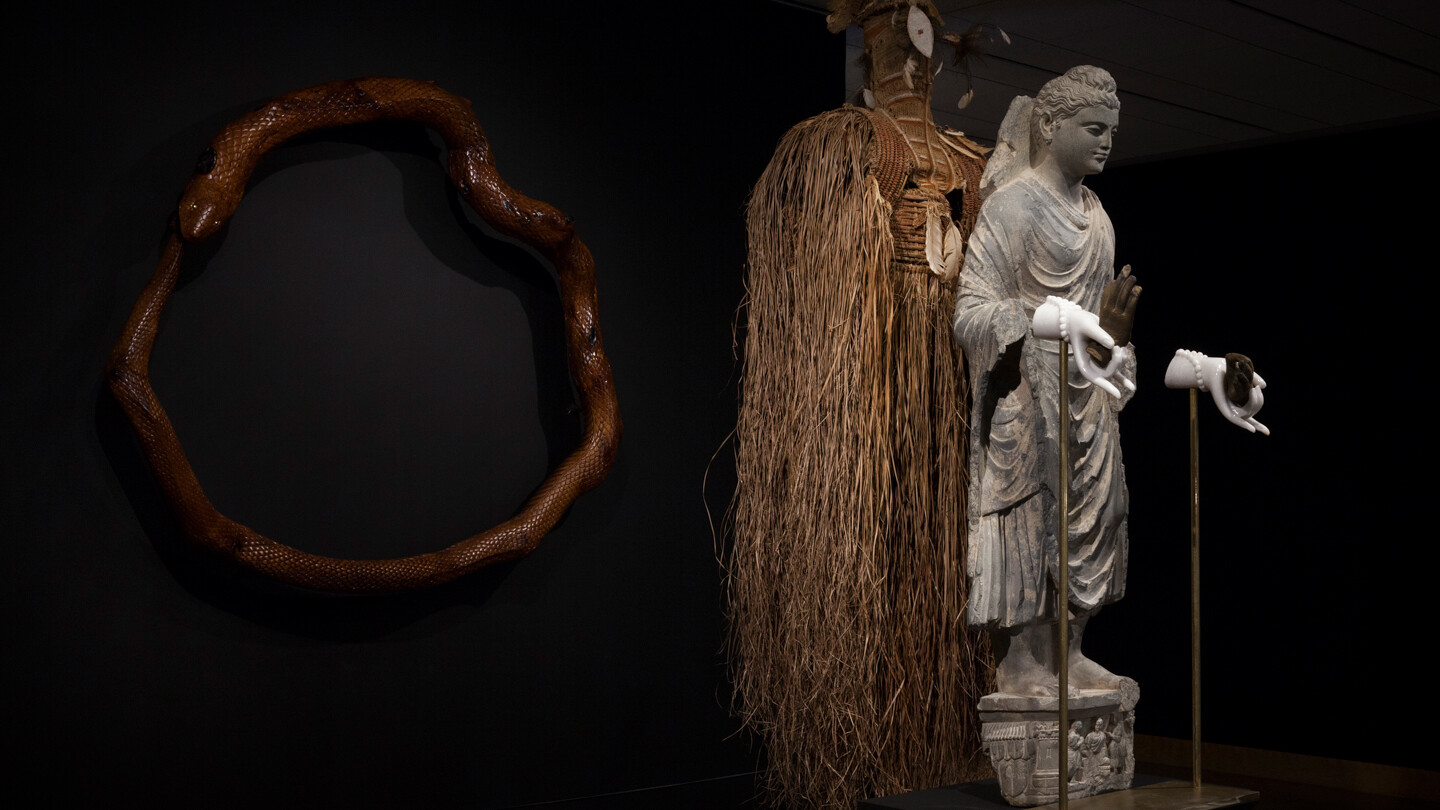April 22–September 10, 2017
2400 3rd Ave S,
Minneapolis, Minnesota 55404
United States
Hours: Tuesday–Sunday 10am–5pm,
Thursday–Friday 10am–9pm
T +1 612 870 3000
The Minneapolis Institute of Art (Mia) and Ho Chi Minh City–based artist collective The Propeller Group have collaborated on an exhibition that explores the liminal space between life and death and ways to critically show contemporary art from Vietnam in the context of an encyclopedic art museum.
New Pictures: The Propeller Group, Reincarnations features the collective’s 2014 film The Living Need Light, the Dead Need Music, recently acquired by Mia. It will accompany an installation of Buddhist statues, funerary objects, images of snakes and fires, and other artworks from Mia’s encyclopedic collection of Asian, African, Latin American, Oceanian, and Native American art (spanning the 22nd century BCE to 20th century CE) to invoke a trans-cultural and trans-historical dialogue. The objects were chosen by the artists, who also designed their installation along with several new objects—commissioning a stone carver in Vietnam, for instance, to make new hands for statues at Mia that are missing limbs, a nod to the importance of hand gestures as central to the identity of Buddhist deities—which will be on display. The objects are installed in the form of a procession, facing the projected film.
Curated by Yasufumi Nakamori, curator and head of Mia’s Department of Photography and New Media, and funded by Mia’s Gale Asian Art Initiative, the exhibition offers a dialogue on the transitional, the transformative, the liminal, and the global interconnectedness in the histories of art and material culture. The chosen objects reflect the film’s focus on funereal rituals in Vietnam, where funerals spill out from homes into the streets, blurring public and private. A kind of magical space only found at such events is created—in death, a state removed from daily life, the norms of Vietnamese society can be broken. For example, performers from the transgender and transsexual communities are welcomed at funerals to entertain with singing, stripping, fire-breathing, and other acts.
“The Propeller Group has become a standard-bearer of creating socially, historically, and politically engaged and often subversive work that defies expectations and preconceived notions of Southeast Asian culture, all the while challenging our conceptions of death, violence, and the world we live in, and revealing uncanny interconnectedness among the Global South cultures,” Nakamori said.
This exhibition is the second installation in Mia’s “New Pictures” series since Nakamori joined the museum in 2016. The series highlights the vital innovations and experimentations in photography and new media undertaken by artists who critically address contemporary society’s complexities in the context of an encyclopedic art museum. The first exhibition was Leslie Hewitt: A Series of Projections (November 4, 2016, to April 16, 2017).
The Propeller Group was established in 2006 by Phunam (b. 1974, Sai Gon, Vietnam), Matt Lucero (b. 1976, Upland, California), and Tuan Andrew Nguyen (b. 1976, Sai Gon, Vietnam). Based in Ho Chi Minh City, The Propeller Group is known for creating large-scale, cross-disciplinary, and collaborative works that examine issues of politics, power, propaganda, and manipulation, with a focus on the cultural, political, and economic conditions of Asia. The artist collective first rose to international acclaim for its Television Commercial for Communism (2011), which debuted in the New Museum’s 2012 Triennial exhibition and explored the inherent tensions and contradictions between Communist and capitalist systems.
The Minneapolis Institute of Art (Mia) is home to more than 89,000 works of art representing 5,000 years of world history. Mia inspires wonder, spurs creativity, and nourishes the imagination. With extraordinary exhibitions and one of the finest wide-ranging art collections in the country—Rembrandt to van Gogh, Monet to Matisse, Asian to African—Mia links the past to the present, enables global conversations, and offers an exceptional setting for inspiration. General admission to Mia is always free. Some special exhibitions have a nominal admission fee.

